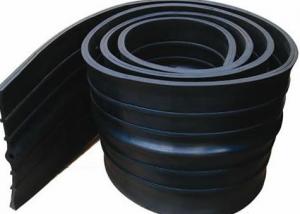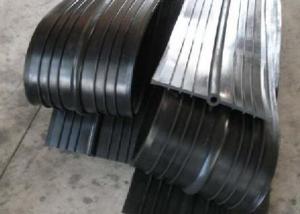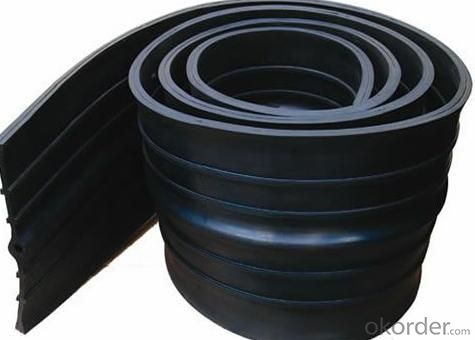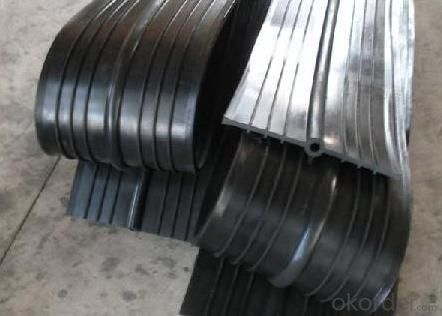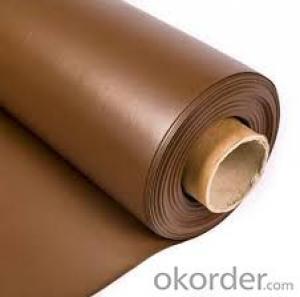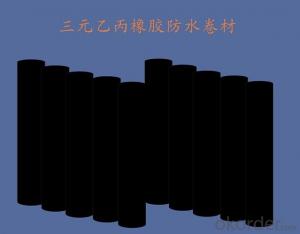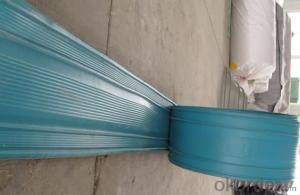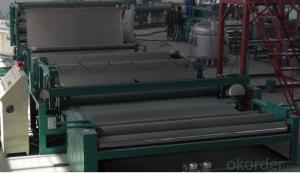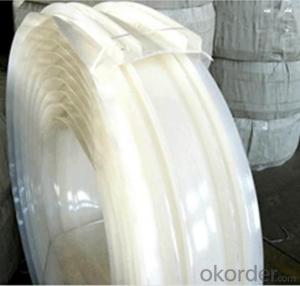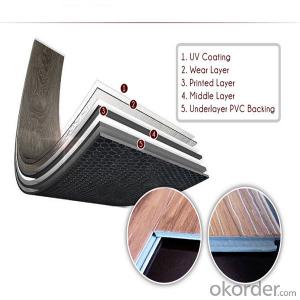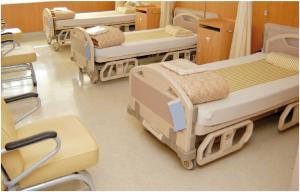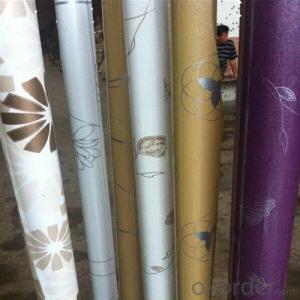High Quality Construction Joint PVC Waterstops With Different Colors
- Loading Port:
- Qingdao Port
- Payment Terms:
- TT or LC
- Min Order Qty:
- 20GP m²
- Supply Capability:
- 20 Containers Per Month m²/month
OKorder Service Pledge
OKorder Financial Service
You Might Also Like
Introduction Of Construction Joint PVC Waterstops :
PVC waterstops (A series of assembly design and applicable for various requirements .)
PVC waterstops is made of high grade polyvinyl chloride and features unique design and advanced process. It is applicable for various joints during construction and use. Simple use and easy combination in construction site.
Specification Of Construction Joint PVC Waterstops :
Thickness: 1.0mm-4.0mm
Width:17-30cm
Length: 10m
colour: Gray, blue or according to your order.
Application Of Construction Joint PVC Waterstops :
Different shapes of PVC Waterstops centrally and extermally placed allow lasting watertight seals in any grades of construction design. They are typically used in water retaining and excluding structure, such as reservoirs, sewage tanks, dams, pools, basements,subway, tunnels retaining walls, etc.
Pictures Of Construction Joint PVC Waterstops :
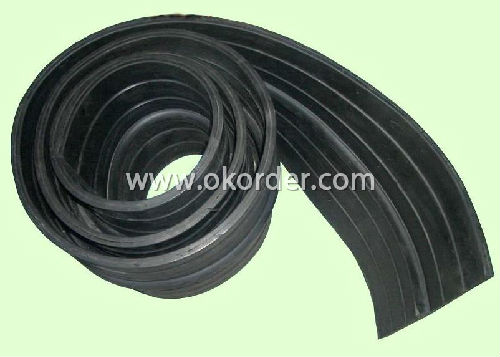
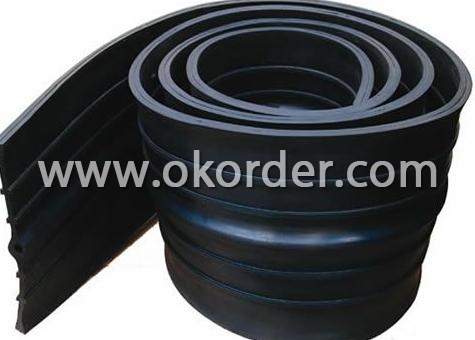
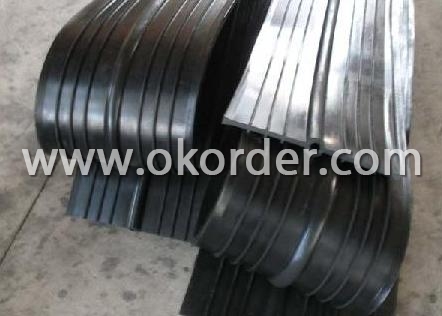
- Q: Can a waterproofing membrane be used on plywood?
- Plywood, a commonly used material in construction, is often employed as a subfloor or as a foundation for different types of flooring. However, it lacks natural waterproofing properties and is vulnerable to moisture-related damage. To safeguard plywood from water harm, the application of a waterproofing membrane is recommended. These membranes serve as barriers, preventing water from infiltrating the plywood and thereby keeping it dry while deterring the growth of rot or mold. Waterproofing membranes find utility in various settings including bathrooms, kitchens, decks, and roofs. It is essential to select a suitable membrane for plywood and adhere to the manufacturer's instructions for proper installation in order to achieve optimal outcomes.
- Q: Can a waterproofing membrane be installed on a concrete foundation?
- Yes, a waterproofing membrane can be installed on a concrete foundation. Waterproofing membranes are commonly used to protect concrete foundations from water damage and to prevent moisture from seeping into the building. The membrane is applied directly onto the foundation to create a barrier against water penetration.
- Q: Can waterproofing membranes be used on concrete pools?
- Yes, waterproofing membranes can be used on concrete pools. Waterproofing membranes are designed to provide a barrier against water penetration and can be applied to various surfaces, including concrete. Concrete pools are susceptible to water leakage over time due to cracks or deterioration, and applying a waterproofing membrane can help prevent these issues. The membrane is typically applied to the pool's interior surface, creating a seamless and watertight seal. It is important to choose a high-quality waterproofing membrane specifically designed for use in swimming pools to ensure long-lasting and effective results.
- Q: Can a waterproofing membrane be applied on top of insulation materials?
- Yes, a waterproofing membrane can be applied on top of insulation materials. However, it is important to ensure that the insulation material is properly installed and does not compromise the effectiveness of the waterproofing system. Additionally, the type of insulation material used should be compatible with the waterproofing membrane to avoid any potential issues or damage.
- Q: Can a waterproofing membrane be used for water fountains or decorative features?
- Water fountains and decorative features can benefit from the use of a waterproofing membrane. These membranes are specifically designed to create a protective barrier against water penetration and can be applied to various surfaces, including those found in water fountains and decorative features. The materials used to make these membranes, such as rubber, bitumen, or liquid-applied coatings, possess excellent waterproofing properties. By applying a waterproofing membrane, you can effectively prevent water from infiltrating the underlying structure and causing damage. This is particularly crucial for water fountains and decorative features, as they are constantly exposed to water. Moreover, waterproofing membranes can also play a role in averting leaks, cracks, and other potential issues that may arise from water exposure, thereby extending the lifespan of the fountain or decorative feature.
- Q: Can a waterproofing membrane be used in earthquake-prone areas?
- Yes, a waterproofing membrane can be used in earthquake-prone areas. In fact, it is highly recommended to use a waterproofing membrane in such areas to protect buildings and structures from potential water damage caused by earthquakes. Waterproofing membranes are designed to create a barrier against water infiltration, which can be crucial in preventing structural damage and maintaining the integrity of a building during seismic events. Additionally, these membranes can also provide some level of flexibility and elasticity, which can help absorb and distribute the forces exerted during an earthquake, reducing the risk of cracks and leaks. However, it is important to ensure that the waterproofing membrane used is specifically designed and tested to meet the requirements of earthquake-prone areas, considering factors such as the intensity and frequency of seismic activity in the region. Consulting with a structural engineer or a waterproofing specialist is highly recommended to determine the most suitable waterproofing system for earthquake-prone areas.
- Q: Can a waterproofing membrane be used on aluminum surfaces?
- Yes, a waterproofing membrane can be used on aluminum surfaces. Waterproofing membranes are versatile and can be applied to various types of surfaces, including aluminum. These membranes are designed to provide a protective barrier against water and moisture, preventing leaks and water damage. Applying a waterproofing membrane on aluminum surfaces can help extend the lifespan of the material by protecting it from corrosion and rust caused by water exposure. However, it is important to ensure that the waterproofing membrane chosen is compatible with aluminum and suitable for the specific application to achieve optimal results.
- Q: Can a waterproofing membrane be used in areas with heavy foot traffic or vehicle loadings?
- Yes, a waterproofing membrane can be used in areas with heavy foot traffic or vehicle loadings. However, it is important to choose a membrane that is specifically designed for such applications to ensure durability and longevity. These specialized membranes are typically thicker and more resistant to wear and tear. Additionally, consideration should be given to the type of traffic or loading that the area will experience. For example, areas with vehicular traffic may require a membrane with higher compressive strength to withstand the weight of vehicles. In summary, while waterproofing membranes can be used in high-traffic or heavy loading areas, it is crucial to select the appropriate type of membrane that meets the specific demands of the application.
- Q: Are waterproofing membranes suitable for indoor applications?
- Yes, waterproofing membranes are suitable for indoor applications. Waterproofing membranes are designed to prevent water penetration and moisture buildup, making them an ideal solution for areas that are prone to water damage, such as basements, bathrooms, and kitchens. These membranes create a barrier that prevents water from seeping through floors, walls, or other surfaces, effectively protecting the structure from water-related issues like mold, rot, and structural damage. Additionally, waterproofing membranes can also help regulate humidity levels, leading to a more comfortable and healthier indoor environment.
- Q: How does a waterproofing membrane prevent water infiltration?
- A waterproofing membrane is a specialized barrier that is used to prevent water infiltration into structures such as buildings or underground structures. It is typically made of synthetic materials such as rubber, PVC, or bitumen, which are known for their water-resistant properties. The primary function of a waterproofing membrane is to create a physical barrier that water cannot penetrate. It is installed on the exterior surface of the structure, forming a continuous layer that adheres tightly to the substrate. This prevents water from seeping through cracks, joints, or porous surfaces, and instead directs it away from the structure. One of the key ways in which a waterproofing membrane prevents water infiltration is by providing a seamless and impermeable layer. This means that there are no gaps or weak points where water can enter. The membrane is typically applied in multiple layers to ensure a durable and watertight seal, effectively preventing any water from penetrating the structure. Additionally, a waterproofing membrane is designed to be highly resistant to water pressure. It can withstand the hydrostatic pressure exerted by water and prevents it from forcing its way into the structure. This is particularly important for below-ground structures such as basements or foundations that are susceptible to groundwater infiltration. Moreover, a waterproofing membrane is often equipped with additional features to enhance its effectiveness. These may include additives or properties that enhance its flexibility, durability, or resistance to environmental factors such as UV rays or chemicals. These properties ensure that the membrane remains intact and functional over time, effectively preventing water infiltration. In summary, a waterproofing membrane prevents water infiltration by creating a seamless and impermeable barrier that water cannot penetrate. It is designed to withstand water pressure and is installed on the exterior surface of structures to prevent water from seeping through cracks, joints, or porous surfaces. With its additional features, a waterproofing membrane ensures long-term protection against water infiltration.
1. Manufacturer Overview
| Location | Shandong, China |
| Year Established | 2003 |
| Annual Output Value | Above 50 Million RMB |
| Main Markets | Mid East; Eastern Europe; North America; Southeast Asia |
| Company Certifications | ISO 9001; ISO 14000 |
2. Manufacturer Certificates
| a) Certification Name | |
| Range | |
| Reference | |
| Validity Period |
3. Manufacturer Capability
| a) Trade Capacity | |
| Nearest Port | Tianjin; Qingdao |
| Export Percentage | 10% |
| No.of Employees in Trade Department | 5-10 People |
| Language Spoken: | English; Chinese |
| b) Factory Information | |
| Factory Size: | Above 2000 square meters |
| No. of Production Lines | Above 5 |
| Contract Manufacturing | OEM Service Offered; Design Service Offered |
| Product Price Range | Negotiated |
Send your message to us
High Quality Construction Joint PVC Waterstops With Different Colors
- Loading Port:
- Qingdao Port
- Payment Terms:
- TT or LC
- Min Order Qty:
- 20GP m²
- Supply Capability:
- 20 Containers Per Month m²/month
OKorder Service Pledge
OKorder Financial Service
Similar products
Hot products
Hot Searches
Related keywords
